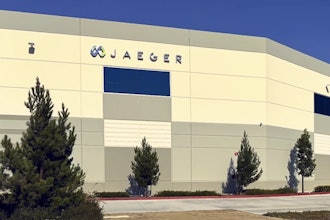
ROME (AP) — Organized crime has a seemingly insatiable appetite for farm and food businesses, one of the few economic sectors experiencing growth during Italy's protracted economic crisis.
Anti-mafia prosecutors and Italy's farm lobby Coldiretti on Tuesday expressed concern that the country's crime syndicates have increased their infiltration or control of agriculture and food markets, ranging from citrus exports to the U.S., Italian wholesale produce markets and local supermarket chains. They urged new legislation to help law enforcement crack down on mobsters' involvement in farming and food production.
A report estimated the overall volume of business in what has been called the "agri-Mafia" interests jumped by 30 percent in 2016, compared to 2015's volume. The report, which was presented at Coldiretti's Rome headquarters to anti-Mafia investigators, law enforcement ministers, lawmakers and police officials, calculated the amount of business at 21.8 billion euros ($23 billion), stressing the estimate was likely low.
The bounty of Italy's renowned farm products is so plentiful, each crime syndicate and sometimes even specific clans are specializing in certain items.
"The most notorious clans of organized crime have divvied up the food business, putting their hands on the products that are symbols of 'made in Italy,'" Coldiretti said.
National anti-Mafia Prosecutor Franco Roberti cited the crackdown earlier this year on what he called "a colossal fraud" in olive oil exports, perpetrated by the 'ndrangheta, the southern-Italy based crime organization that is considered one of the world's most powerful syndicates.
Investigators alleged the Piromalli crime clan in Reggio Calabria was behind the export to major U.S. stores of what was labeled extra virgin olive oil — the most prized kind — but what was really oil made from the residue of olive oil production purchased from the Middle East.
The report noted that the same 'ndrangheta clan also had controlled production and export of oranges, mandarin oranges and lemons to the U.S.
Roberti noted that unscrupulous financial companies not infrequently act in cahoots with mobsters in the agriculture businesses.
Interior Minister Marco Minniti said that the mobsters' interests also reflect Mafia origins in the southern countryside centuries ago when local dons manifested their power by letting their herds graze in others' field or stealing animals.
So, organized crime's heightened recent interests in farm businesses "is a cross between ancient crimes and most modern ones," like the laundering the farm business profits through sophistical financial channels, Minniti said.
The annual report was prepared by the farm lobby, the Eurispes think tank and the Observatory Foundation, which monitors crimes in farm and food businesses.






















